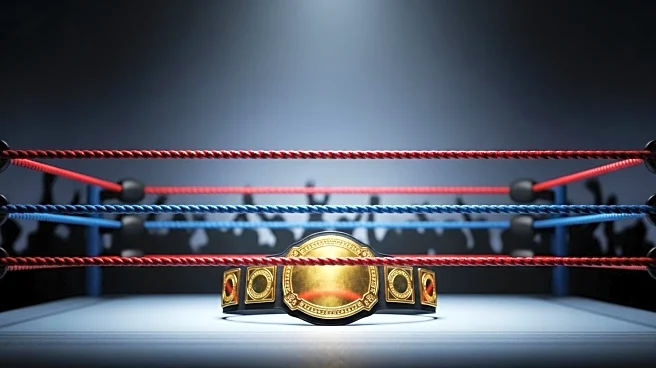What's Happening?
WWE's recent premium live event, Wrestlepalooza, held on ESPN, did not achieve the expected social media and internet buzz typically associated with WWE's major events. This event coincided with AEW's All Out, leading to counterprogramming challenges. Historically, WWE's debut events with new broadcast partners have been significant, such as the Fox debut in 2019 featuring Brock Lesnar's victory over Kofi Kingston, and the Netflix debut earlier this year with notable matches involving The Rock, John Cena, and others. However, Wrestlepalooza's impact was muted, leaving WWE vulnerable to the competitive programming from AEW.
Why It's Important?
The muted response to Wrestlepalooza highlights the competitive landscape in professional wrestling, where WWE and AEW vie for audience attention. This situation underscores the importance of strategic event planning and timing in the industry. WWE's inability to dominate the conversation during this event could affect its brand perception and market position. The rivalry with AEW is significant as both companies aim to capture the same audience, and any misstep can lead to shifts in viewership and fan loyalty.
What's Next?
WWE may need to reassess its event scheduling and promotional strategies to better compete with AEW's programming. Future events might require more innovative approaches to ensure they capture the audience's attention and maintain WWE's dominance in the wrestling industry. Stakeholders, including broadcasters and sponsors, will likely push for strategies that maximize viewership and engagement.
Beyond the Headlines
The situation reflects broader trends in entertainment where traditional media companies face challenges from newer, agile competitors. WWE's experience may serve as a case study for other industries on the importance of adapting to changing consumer preferences and competitive dynamics.










